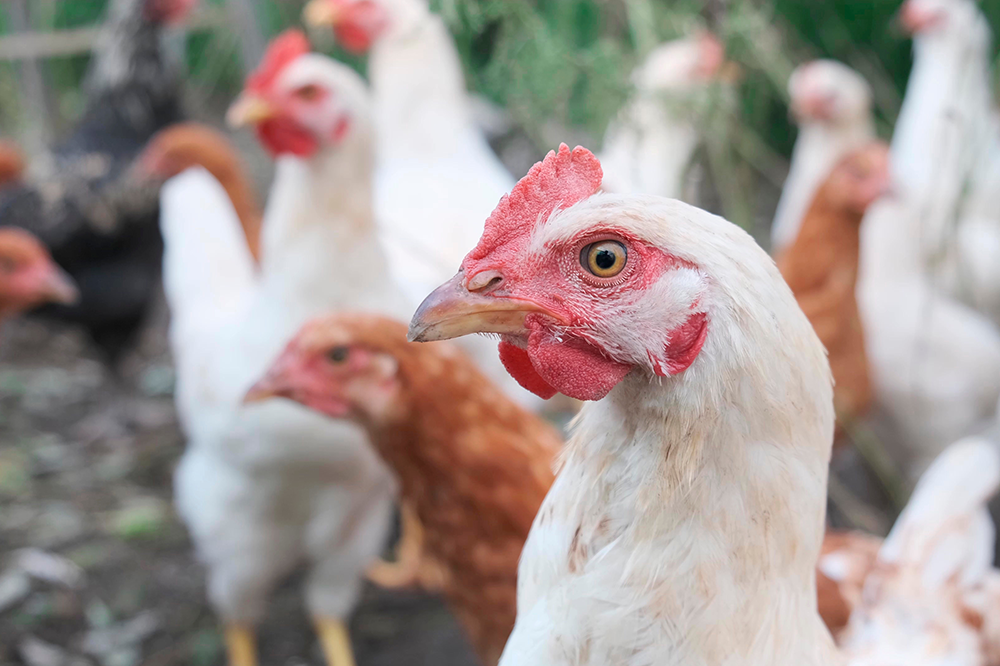KFC’s admission that it won’t meet the Better Chicken Commitment has ruffled the feathers of those behind the scheme. Others in foodservice need to watch out, says David Burrows.
The 2026 deadline for the Better Chicken Commitment (BCC) is fast approaching, but are companies on track to deliver on their promises? So asked Compassion in World Farming (CIWF) in a press statement this month that clearly showed it has got the jitters about commitments to better chicken, especially in foodservice.
“The foodservice sector cannot rely on retailers to lead the way,” said Tracey Jones, global director for food business at CIWF. “It must take responsibility for its own actions and drive change within its sphere of influence.”
The publicity was designed to flag the charity’s ChickenTrack report, which will be launched in March to act as a “wake-up call” to food businesses. The report will “shine a spotlight on companies making progress and call out those lagging behind”.
In the UK, there are 128 companies signed up to the BCC, including Accor Hotels, Compass Group, Nando’s, Greggs, Subway, Burger King, itsu, KFC, KraftHeinz, Loungers, Marks & Spencer, Nestlé, Nomad Foods, Pret, Sodexo, SSP, Unilever, The Big Table and Waitrose. There are quite a number of foodservice and hospitality businesses who have not committed; while these may well be scrutinised by CIWF it is those who have signed up, enjoyed the positive PR from doing so and pecked at the lower hanging fruit in the commitment (like more light, increased perch space and reduced stocking density), that may attract the most ire.
“A commitment is a commitment and should be honoured – not only for the reputation of the business but also to meet the growing expectations of consumers, shareholders, and investors, and most importantly, to improve the welfare of the millions of chickens in the supply chain,” said Jones.
“Improving chicken welfare involves more than just reducing stocking densities or adding natural light,” she added; “it requires a comprehensive commitment to all criteria of the Better Chicken Commitment – most critically, breed change”.
Slow-growing market
The use of slower-growing breeds is where cracks in the commitment have emerged in recent weeks. Signatories must adopt breeds that demonstrate higher welfare outcomes: either the following breeds, Hubbard Redbro (indoor only), Norfolk Black, JACY57, JA757, 787, 957, or 987, Rambler Ranger, Ranger Classic, Rustic Gold (indoor only), and Ranger Gold, or others that meet the criteria of the RSPCA broiler breed welfare assessment protocol.
KFC is at the centre of the storm. “Chicken is our business and we have a responsibility to support change,” it stated when joining the BCC in 2019 (a quote still occupying a prime position on the BCC website). But not sole responsibility, it argued last month: “the UK poultry industry is not yet in an operational or commercial position to deliver the Better Chicken Commitment by 2026”, said Rudi Van Schoor, chief corporate supply chain officer at KFC Pan-Europe.
It’s quite a chaotic landscape currently in chicken. Margins are wafer thin, pollution problems persist at intensive farms, there are damaging details about deforestation linked to our rising penchant for poultry, and confidence is low. Mighty Earth recently produced research showing that supermarkets and fast-food restaurants risk exposure to illegal deforestation-linked soy (a big part of chicken feed) via US commodities giant, Cargill, and its commercial ties to Moy Park, which supplies chicken into many UK outlets.
Large agri-food firms dominate the supply chain and are seemingly reluctant to budge or even nudge towards slower-growing breeds. BCC is a “frequent request” noted Avara Foods (the massive poultry processor faced with problems around sites located near the perniciously-polluted River Wye) in its just-published ESG update. “Over the course of the remainder of this year and into 2025, more of our farms will plan to stock to 30kg per square metre, well below EU (42kg), UK (39kg) and Red Tractor (38kg) standards. We will continue to rear our standard chicken on these farms, the Ross 308, as this will enable us to balance improvements in welfare against environmental footprint, which is much higher for ECC approved breeds.” Ross 308 is not one of the slower-growing breeds permitted under the BCC.
Ruffled
Van Schoor said in signing up in 2019 that KFC, which makes up almost 3% of the total UK chicken market, was “very clear” that the whole sector had to move, and its commitment was supposed to “agitate” for change in the wider industry.
KFC has admitted before that the race to slower growing breeds is, well, a slow one. In 2020, 1.72% of KFC’s chickens were from such higher welfare breeds; by 2021 it had managed 2.16% and in 2022 3.06%. Once the right breeds have been selected it will take “more than three to four years” to switch over in each market, the company noted in its 2020 chicken welfare report.
However, in blaming an insufficient supply and claiming producers are not switching breeds in large enough numbers to meet demand, KFC has agitated the likes of CIWF. Many foodservice companies pledged to meet BCC criteria by 2026, expecting UK retailers to follow and drive market growth for higher-welfare chicken. “Progress in retail has been slow,” CIWF explained, “but the foodservice sector cannot wait. Supply exists in some quantity, and they must act now to build it. Every BCC signatory must take ownership of their pledge.”
KFC is the first to admit publicly that it can’t meet the full criteria set out in the BCC. It is unlikely to be the last.









